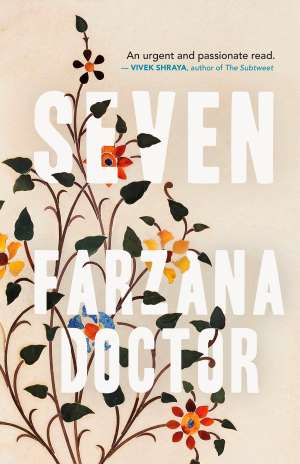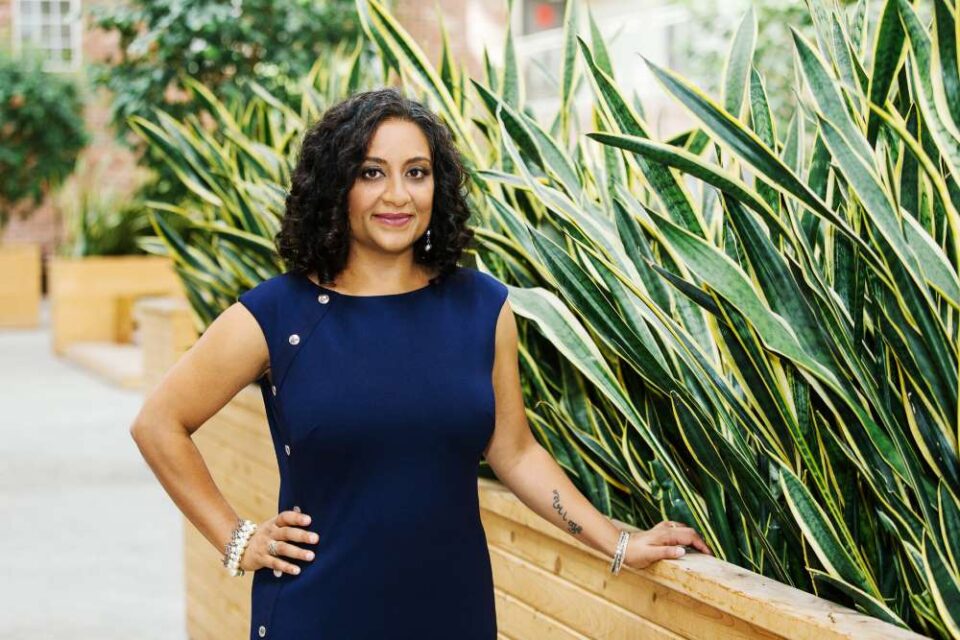BY VEENA RAO
Author Farzana Doctor’s recently released novel, Seven is a sensitively told story of a woman who travels to India to research the legend of her great-great-grandfather, but unexpectedly discovers, and must confront, a shocking truth about her own past. Crafted around the theme of khatna, or female genital mutilation (FGM) in the Dawoodi Bohra community, the novel is insightful, educational, and deeply engrossing.
When Sharifa accompanies her husband on a marriage-saving trip to India, she thinks that she’s going to research her great-great-grandfather, a wealthy business leader and philanthropist. What captures her imagination is not his rags-to-riches story, but the mystery of his four wives, missing from the family lore. She ends up excavating much more than she had imagined.
Sharifa’s trip coincides with a time of unrest within her insular and conservative religious community, and there is no escaping its politics. A group of feminists is speaking out against khatna, an age-old ritual they insist is female genital cutting. Sharifa’s two favorite cousins are on opposite sides of the debate and she seeks a middle ground. As the issue heats up, Sharifa discovers an unexpected truth and is forced to take a position.
Doctor spoke to NRI Pulse about the challenges of balancing activism with creative writing, her reasons for taking up a controversial topic like khatna in Seven, and about the practice of FGM in North America and around the world.

What motivated you to take up a heavy, controversial topic like khatna or Female Genital Mutilation (FGM) in Seven?
I think most novels begin with obsession. 2015—when I began writing the novel—was an emotionally intense time for me. I was involved in WeSpeakOut and was mining my own khatna memories. I woke up each morning with fully formed fictional scenes pouring out into a notebook. I was really struck by how much silence and secrecy there is around the issue. I now realize that part of my obsession was about breaking the silence and normalizing conversations around the issue.
While FGM is a bold topic, you have handled it with great sensitivity and balance. What were the challenges of crafting a fictional work on a topic like this?
I knew that my main goal was to write a good novel—a page-turning, nuanced and deep story with complex characters and relationships—so I needed to prioritize my novelist self over my activist self. This was challenging at times because I wanted to stay true to the activism and not sugar-coat the issues.
I also knew I had to explain and describe a community and practice that is mostly unknown to the world. Balancing storytelling with exposition was something I had to monitor always. I opted to make my protagonist a bit clueless so that the reader could follow her in her discoveries and learn about the issues in a digestible way. I focused on her personal struggles (her infidelity, her sexual difficulties, her marriage, her conflicts with her family) and folded the societal ones into all of that.
Increasingly, female authors are speaking out against FGM using literature as a tool in the fight to end this practice. Did you read up other books on the topic before you started writing Seven?
I am often hesitant to read similarly themed books while doing my own new writing; I want to stay true to the unique story that is unspooling from me. Instead, I watched films about FGM (including A Pinch of Skin and In the Name of Your Daughter), talked with other survivors and activist comrades.
Most of us think FGM is only practiced in North Africa or some Middle Eastern communities. We don’t think of it as being practiced in India or by some communities even here in the US.
Yes, FGM in India became part of the mainstream media/public discourse only in 2015. We now know that FGM happens in 92 countries and is a global issue because survivors from many places, including white Christian women in the US, have started speaking out. We’re having a global FGM #MeToo movement.
I first came to know about FGM in the Indian-American context after the arrest of Jumana Nagarwala. In a major blow to the movement against khatna, a federal judge in Detroit declared the nation’s female genital mutilation law unconstitutional, thereby dismissing nearly all of the charges against Nagarwala and other accused of subjecting at least nine minor girls to genital cutting. Your thoughts?
It was very disappointing. On the other hand, this case started in 2017 and hasn’t yet concluded. The details of the case have rippled through the Bohra and other communities worldwide, opening a conversation that hadn’t happened before.
While some pro-khatna people might feel they are justified and legally safe, many others who had never questioned khatna might now worry about potential legal consequences. These ambivalent folks might have learned—for the first time—that this practice is illegal in most countries and that it can have long-term negative emotional, physical and sexual consequences. So, the bright side is that the Nagarwala case has raised much-needed awareness.
How has your community reacted to the book?
Last week I was in a Zoom call with India-based academics. One of them, a Bohri woman, beamed at me and told me she was proud of me for writing about this taboo subject. Last month, a young Bohri woman in Canada shared that the book facilitated conversations in her family about the issue, conversations they’d never had before. Others in my family and community have reached out to say similar things.
As an aside, I’ve done about 40 speaking engagements to promote the book, all of which turn to conversations about FGM. The book has (quite unexpectedly) become a vehicle for awareness-raising. While I start out wearing my novelist cap at events, I nearly always end up donning my activist beret!
In Sharifa, we have a very relatable protagonist who is on a mission to find out about her great-great-grandfather but finds out shocking secrets about her own past. Tell us more about how she came to be?
I wanted my protagonist to go on these dual quests, with the historical one being a way for her to process the more personal one. I also wanted her to have lots of points of tension, and I’ve been interested in infidelity and sexuality difficulties and healing, so I gave her a measure of each.
I also wanted my protagonist to be a diasporic, first-gen immigrant to explore the conflicts that come with this identity. What does it mean to belong to a community, but also to not belong?
Abdoolally’s character was inspired by your own great-great-grandfather, Hussonally Dholkawala. I see that you have a blog dedicated to his story. Why is it important for you to preserve memories of your ancestor?
I’ve always been the kid in my family who was interested in the old stories. I think each generation has one of us and I’m thrilled that my nephew has shown interest so I can pass this task off to him.
I think a lot about how our ancestors remain with us, and how their legacies impact us. In the fiction, I explore how Abdoolally’s decisions might have affected five generations, and in real life I’m curious how khatna—a form of intergeneration trauma—has entered and changed our DNA.
Like the fictional Abdolally, Hussonally began humbly, struggled in poverty, and eventually became a successful businessman. You mention in your blog that his legacy lies in his high standards and consideration for others. Hussonally also had four wives, and according to rumors, he divorced the third wife out of anger because she called him impotent. What went through your mind when you discovered this and what motivated you to fictionalize Hussonally?
Hussonally is a family hero, and I didn’t want to mess with that. But I did learn some really interesting things about him that became jumping-off points for the fictional Abdoolally. I knew I couldn’t find out the real reasons behind Hussonally’s divorce (and I wasn’t shocked that he was divorced, or that there were false rumors about him—he was human like the rest of us), but I could create imaginary reasons for Abdoolally’s break-up that would also serve Sharifa’s story.
It was a lot of fun! Hussonally’s details were like the wood frame of a house. I could build the roof and walls, add the plumbing and bookshelves and make decisions about what to leave hidden in the attic.
This is your fourth novel. What are the challenges of releasing a novel during the pandemic? How different has the experience been as compared to your previous novels?
Oh, it’s very different! My main complaint is that after the event there’s no socializing with the audience and other authors. The screen goes black and I return to being alone in my basement office. It’s all work and no play.
But there have been unexpected gifts: invitations to attend events from far-away places, the ability to do more promo (because my time and energy isn’t taken with travel) and a potentially wider audience and readership. Plus, I learned how to go live on Instagram!
About the author: Farzana Doctor is a writer, activist, and psychotherapist. Her ancestry is Indian, and she was born in Zambia while her family was based there for five years, before immigrating to Canada in 1971. Seven is her fourth novel. Find out more about her on her website: https://farzanadoctor.com/
Buy Seven: https://farzanadoctor.com/seven/



